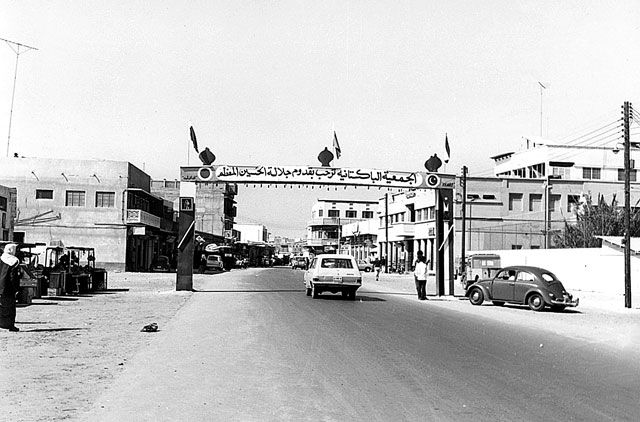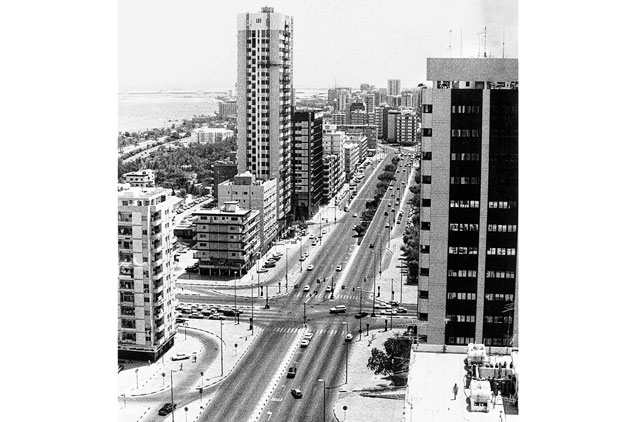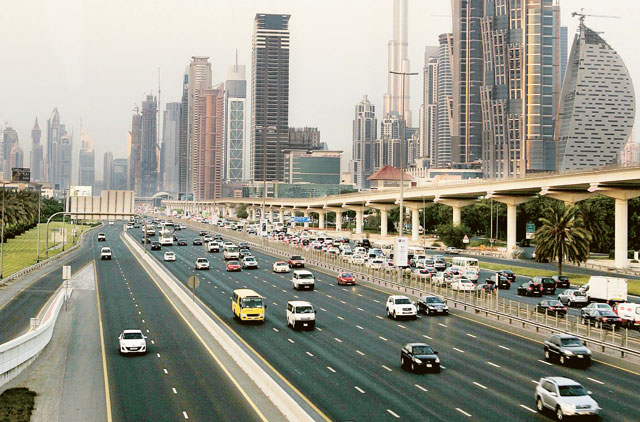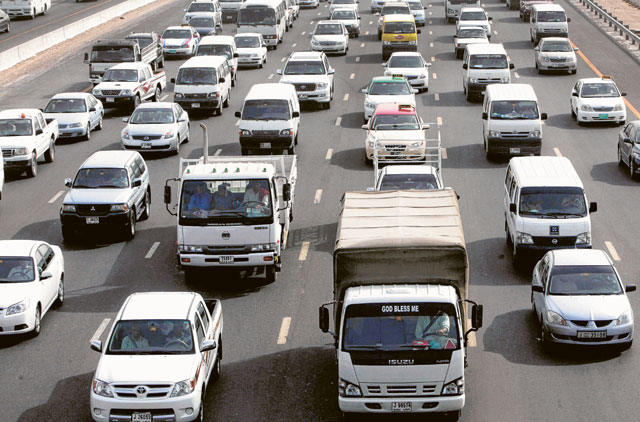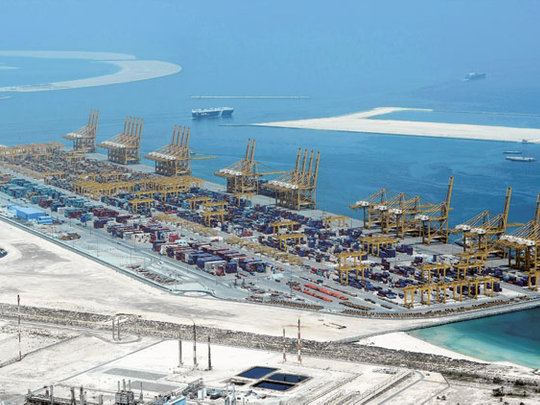
Dubai: A country that once had no airline of its own, or a railway system, or an established port network, will be at the world's centre stage in a few years. Today the country boasts five airlines of its own, a massive ongoing railway project— Etihad Rail — to connect the entire GCC on completion, Dubai's Metro rail network; and a wide network of a number of ports.
The UAE's first airline, Emirates, kicked off operations with just two aircraft 26 years ago. Today, the largest in the Arab world and one of the world's biggest carriers boasts a fleet of 162 aircraft, with many more to join in the coming years.
Abu Dhabi's Etihad Airways is also adopting an aggressive growth strategy, as are other carriers in the region, including budget airlines Air Arabia and flydubai.
But it's not just an aviation boom the UAE is set to witness in the coming years. The first 40 years have seen a growth explosion across a gamut of transport areas. These include the fast growth of the Dubai Metro and the much-talked about Etihad Rail system.
"While currently the share of railways in surface cargo transport in the UAE is nil, it is likely to change with the completion of the planned nationwide railway project. The rail mode is expected to account for about 15 per cent of cargo movement in the country by 2020," says Srinath Manda, Frost and Sullivan's programme manager for transportation and logistics practice in the Middle East, North Africa and South Asia.
New avenues
He added the UAE's ongoing and planned transport projects are either "aimed at expanding the country's existing transportation capacities in various modes or creating new avenues for the movement of cargo and passengers".
"While projects such as Al Maktoum International Airport can be considered under the former category, projects such as Etihad Rail and Abu Dhabi Light Rail Transit can be considered under the latter category," Manda said.
"Due to such focus on the development of transport projects, each of them is expected to add significant value to the UAE's economy and consolidate its position as the leading logistics hub of the Middle East."
He added that among the ongoing and planned airport projects, namely Dubai's Al Maktoum International and the expansion of Abu Dhabi Airport's Midfield Terminal Complex, are among the "most prominent projects with an estimated project value of $8 billion and $6.8 billion respectively." (Dh29.38 billion and Dh24.98 billion)
Large numbers come into play here. Recognising the opportunity for economic development, the UAE has allocated a whopping $136.12 billion investment over the next decade towards creating a global transport hub, says Toby Stokes, Ernst and Young's aviation sector leader for Europe, Middle East, India and Africa.
He said: "The development of a transport and communications infrastructure includes investments for new airport capacity throughout the seven emirates, and plans for Abu Dhabi and Dubai to compete as top regional centres for aircraft maintenance, manufacturing and flight training."
By 2020, Oxford Econ-omic expects the economic contribution of Dubai's aviation sector to rise to $44.5 billion (32 per cent of Dubai's GDP) and to create 372,900 jobs. Supporting the ambitions of the UAE carriers is a solid growth in passenger numbers. As E&Y's Stokes points out: "Air traffic movements in the UAE are close to 2,000 movements per day, an increase of 9.7 per cent year-on-year, and these numbers are expected to continue to grow."
Abu Dhabi Airport's Midfield Terminal Complex, planned to be completed by mid-2014, is expected to have a capacity to handle 20 million passengers a year.
With integration of all the UAE projects — aviation, railway, metro, logistics and shipping — the country is on its way to position itself on the global map as one of the fastest growing in infrastructure development.
As Dr Nasser Al Saidi, chief economist of DIFC, points out: "Investment in integrated infrastructure would lead to benefits from economies of scale (ie lower costs of providing public utilities and other services) and networks leading to the creation of network economies and greater regional integration." He added that this in turn would "attract more FDI" and "greater investment" by the private sector, leading to more job opportunities and employment.
Echoing similar thoughts is Hamad Mubarak Bu Amim, Director-General of the Dubai Chamber of Commerce and Industry. "Large investments in infrastructure have contributed to the UAE's growth. Modern, high-quality facilities have helped attract international businesses to the UAE, while ground-breaking projects like Palm Jumeirah and the Burj Khalifa have promoted the country internationally," he said.
Dubai top gulf port
The UAE's ports have managed to carve a large share of the GCC ports market in the past few decades. The GCC countries have 35 ports in all — and of these — UAE ports alone have the highest share of volume — at 59 per cent, according to a report by Kuwaiti-based investment bank, Markaz. Key UAE ports today include Port Rashid, Port Zayed and Khalifa Port. Most are undergoing a massive expansion phase to meet increasing demand in the future.
The Markaz report also points out Dubai was ranked seventh in the world in 2009, handling 11.1 million TEUs (20-foot equivalent units.)
"Dubai is the foremost GCC port by container volume and is ranked at the ninth place among the top ten world container ports in 2010. Dubai had been ranked as high as seven in 2007 and 2009," the report stated. It further revealed Abu Dhabi has the most ambitious ports project, valued at $10 billion, which competes with Dubai, leading to a possibility of creating overcapacity.


